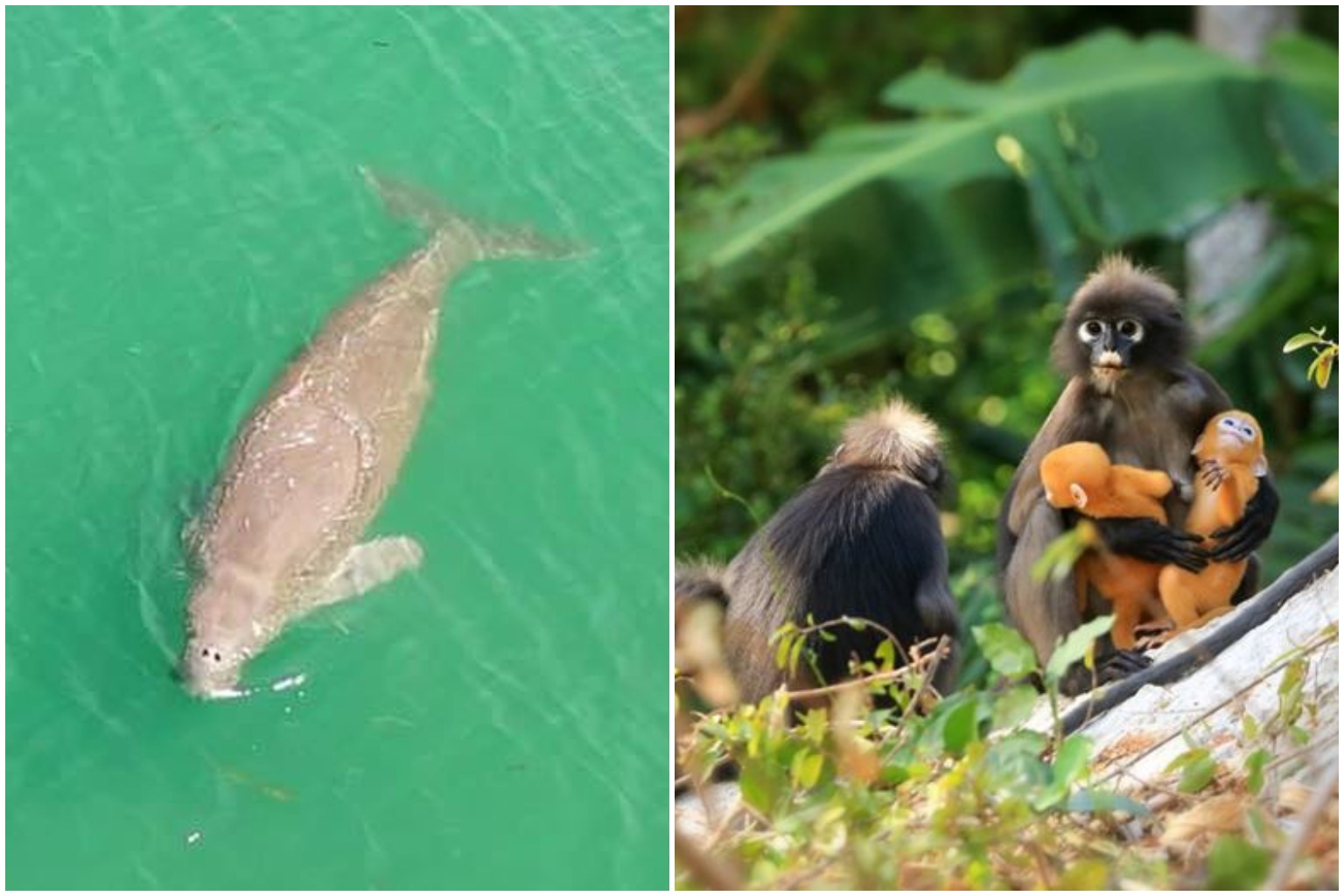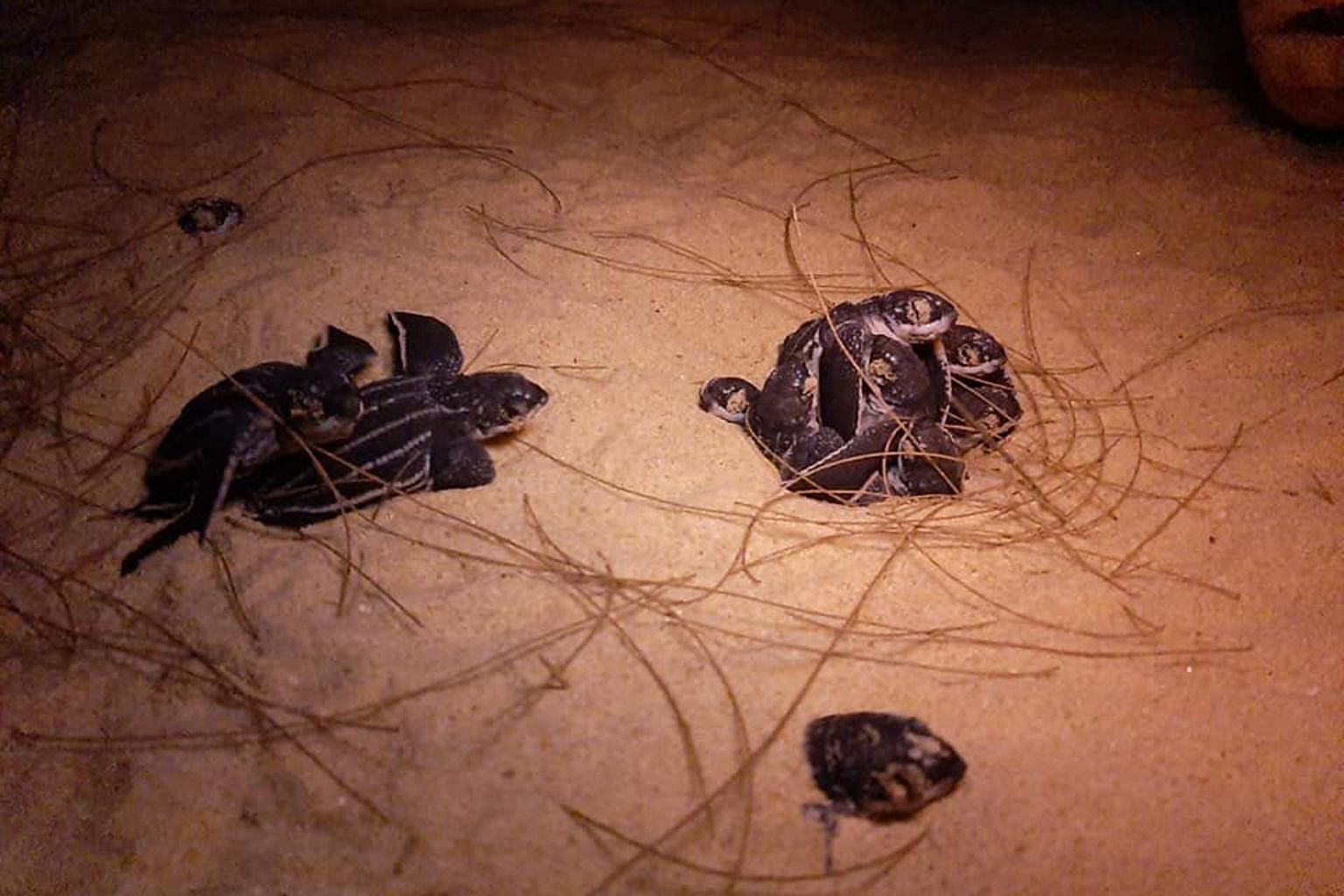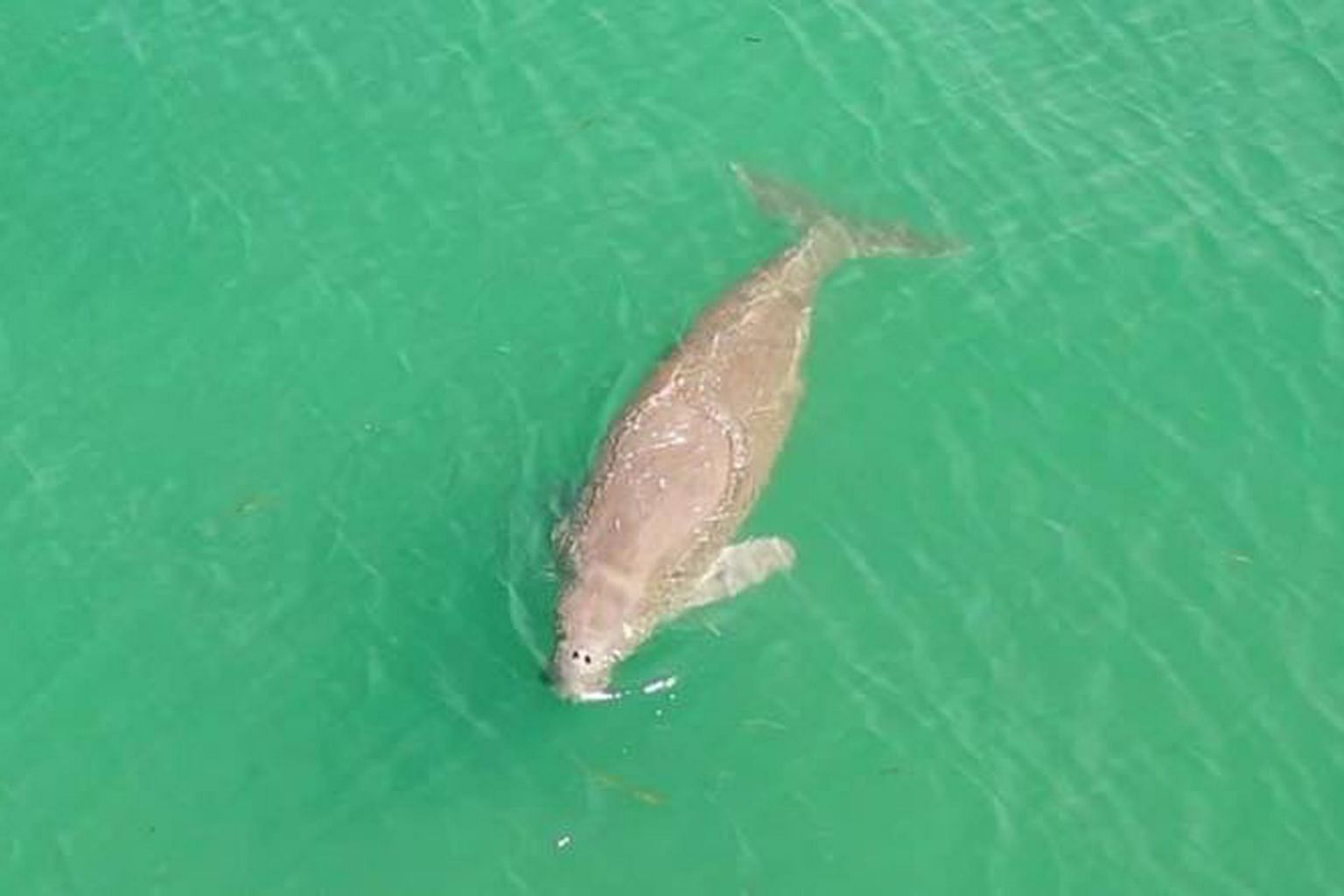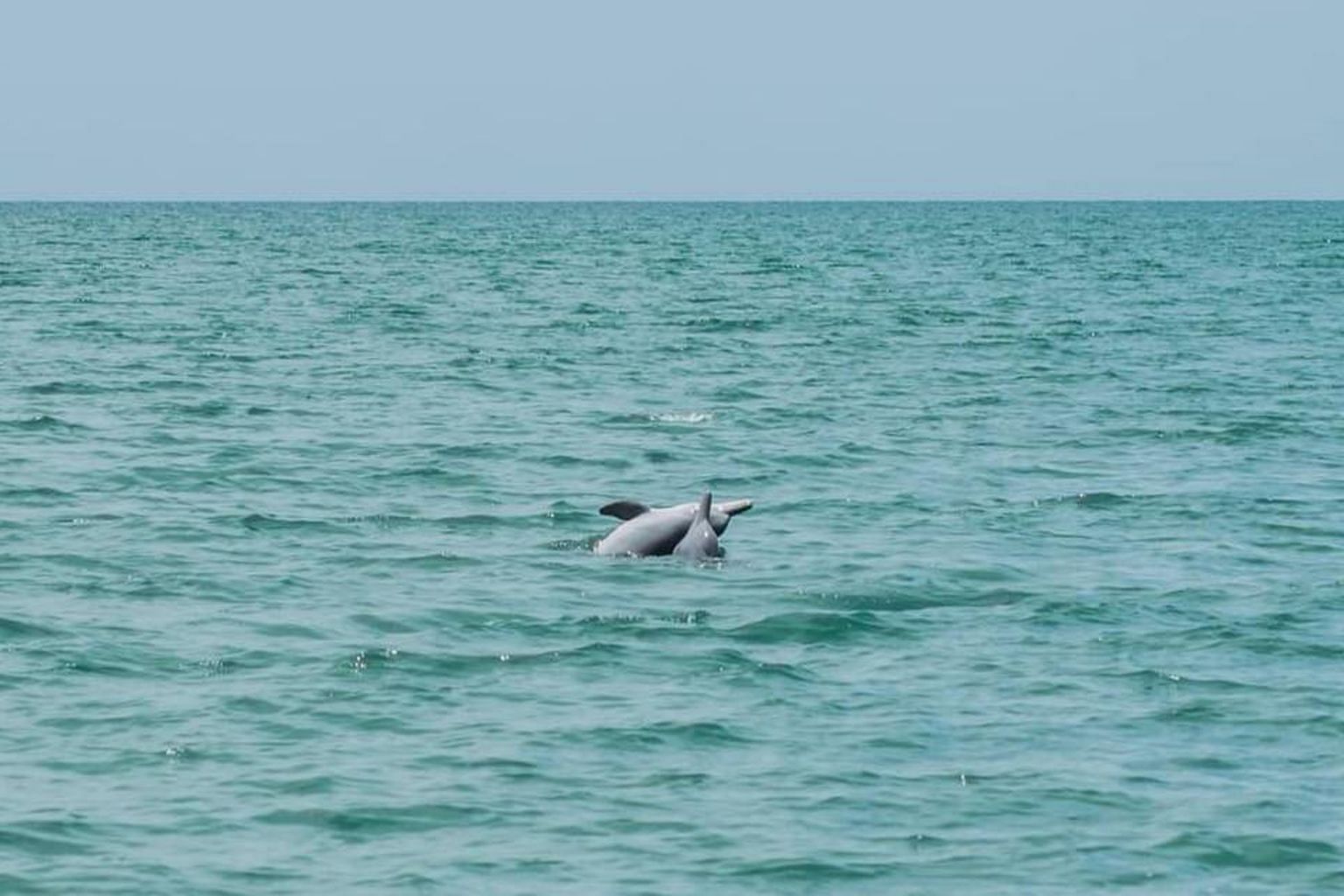Coronavirus: With tourists gone, wildlife makes a comeback in Thailand
Sign up now: Get insights on Asia's fast-moving developments

Park officials have recorded increased sightings of dolphins, dugongs, reef sharks and primates.
PHOTO: DEPARTMENT OF NATIONAL PARKS, WILDLIFE AND PLANT CONSERVATION THAILAND/FACEBOOK
Follow topic:
BANGKOK - It's the time of the year when millions of tourists usually swarm Thailand's beaches, wade into the sea, troop through forests and soak in waterfalls. This year, with national parks closed and people cooped up at home to contain the coronavirus pandemic, wildlife is getting a breather - and venturing further out.
Park officials across Thailand have recorded increased sightings of dolphins, dugongs, reef sharks and primates, some with their young, and in places they normally avoid.
On Wednesday (April 22) alone, a rare herd of 31 dugongs were spotted in Ju Hoi cape in the southern province of Trang.
"We usually spot clusters of dugongs in here from the air," said Mr Chaiyapruk Worawong, the chief of Mu Ko Libong non-hunting area . "But this group is by far the biggest."
On Monday , around 50 typically shy blacktip reef sharks ventured close to the beach in Krabi province's Than Bok Khorani national park.
Leatherback turtles laid at least 11 nests since November in the country, the highest in two decades.
In Surat Thani province, a langur family lazed at the edge of the forest with their fuzzy golden-coloured babies in Mu Ko Ang Thong national park. Newborn peacocks strutted near the office of Lopburi province's Sap Langka wildlife sanctuary.
National parks have been closed since March 25, the same week Thailand declared a state of emergency to contain the Covid-19 virus. Tourist havens like Krabi, Phang Nga and Phuket have been locked down till the end of April.
With tourism at a standstill, officials have been able to take stock of conservation efforts.
"We learnt from this Covid-19 period that we should make more space for the animals, and control the number of visitors in national parks that are important to Thailand," said Dr Thon Thamrongnawasawat, a Kasetsart University scientist who heads a working group that manages Thailand's endangered marine animals.
Record numbers of tourists in recent years have been crowding wildlife out of their natural habitat. Turtles, dugongs and other marine animals that surface to breathe, for example, are often injured by the thousands of speedboats that criss-cross popular marine parks during tourist peak seasons, said Dr Thon.

In 2019, the Department of National Parks, Wildlife and Plant Conservation (DNP) shrugged off a legal challenge by tour operators to cap the number of visitors at Mu Ko Similan National Park to about 4,000 a day. Before the cap, the popular diving spot in the Andaman Sea saw an average of 7,000 visitors a day.
Dr Thon plans to work with the authorities and local communities to carve out new spaces where wildlife can be left alone.
"We can focus on very important nursing grounds for the animals," he said. "Tourism operators have suffered a lot too. We cannot save animals and starve people, or they will not follow the rules (that protect these animals)."

Meanwhile, DNP's Mr Chaiyapruk says the agency is now building an observation tower on the beach at a popular dugong-gazing spot so that tourists will not venture into the water and disturb the grazing mammals.
This rare window of renewal for wildlife also comes with its risks. Marine life is now being threatened by the growing mountains of plastic trash being generated from restaurants forced to serve only takeaway food under Covid-19 lockdown rules.
Bangkok alone now generates 27 per cent more plastic waste - some 1,700 tonnes per day - despite throwing out less garbage overall, notes the Thailand Environment Institute (TEI).

Concerns over contamination have tempered campaigns to reduce single-use plastics. Disposable face masks are a particular hazard because they can contain plastic like polypropylene that take a long time to break down.
TEI is now working with the private sector to set up more disposal systems for plastic to stop them from leeching into waterways and threatening marine life.
"We sell our natural resources and environment to tourists," said TEI president Wijarn Simachaya. "We should use this time to put the proper systems in place, to prepare for the next tourism season."

